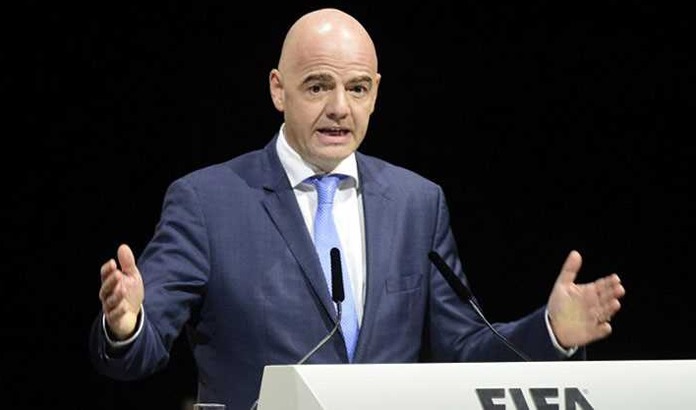The recent FIFA Congress in Paraguay witnessed a dramatic display of tension between FIFA President Gianni Infantino and UEFA representatives, highlighting underlying disagreements within the world of football governance. Infantino’s delayed arrival at the congress, attributed to meetings with US President Donald Trump in Saudi Arabia and Qatar, triggered a walkout by UEFA President Aleksander Ceferin and other European delegates. This act of protest underscored the growing frustration within UEFA regarding Infantino’s leadership style and decision-making processes. While UEFA subsequently downplayed the incident, characterizing the relationship between Ceferin and Infantino as one of “open communication and mutual respect,” the walkout exposed deeper fissures within the footballing world. The incident can be seen as a culmination of several points of contention between UEFA and FIFA, including disagreements over the proposed biennial World Cup and the expansion of the 2030 World Cup.
The core issue at hand revolves around Infantino’s perceived prioritization of political engagements over the established protocols and schedule of the FIFA Congress. His justification for the delay, citing the importance of meetings with the hosts of the 2022 and 2034 World Cups, Qatar and Saudi Arabia respectively, failed to appease the European delegates. Their interpretation of the events suggests a belief that Infantino’s focus on cultivating relationships with powerful political figures, including President Trump, overshadowed his commitment to the governance of football and respect for the assembled delegates. The walkout signified a strong message of disapproval, indicating that UEFA perceives Infantino’s actions as potentially undermining the integrity and autonomy of the sport.
The incident also brought to light existing tensions between UEFA and FIFA, particularly concerning the future direction of the World Cup. Ceferin has been a vocal critic of Infantino’s proposals, including the now-abandoned plan for a biennial World Cup. This proposal, viewed by many in Europe as a threat to the established football calendar and the prestige of the World Cup, generated significant opposition from UEFA and other footballing bodies. More recently, Ceferin has expressed reservations about the proposed expansion of the 2030 World Cup to 64 teams, a move seen by some as a commercially driven decision that could dilute the quality of the tournament. These disagreements reflect a broader philosophical divide between UEFA and FIFA, with the former advocating for a more traditional approach to football governance and the latter seemingly embracing a more expansive and potentially disruptive vision.
The swift attempt by UEFA to downplay the incident through a carefully worded statement suggests a desire to avoid escalating the conflict and maintain a working relationship with FIFA. However, the underlying tensions remain. The statement’s emphasis on “open communication and mutual respect” appears somewhat at odds with the dramatic nature of the walkout, indicating a potential attempt to manage the public perception of the rift. While acknowledging the incident as “isolated,” the statement subtly reinforces UEFA’s position by highlighting the disruption caused by Infantino’s delayed arrival. This careful balancing act suggests a desire to address the concerns raised by the walkout without jeopardizing the necessary cooperation between the two governing bodies.
The long-term implications of this incident remain to be seen. While UEFA’s public stance suggests a willingness to move forward, the underlying issues that led to the walkout remain unresolved. The incident has exposed a power struggle within the world of football, with UEFA asserting its influence and challenging Infantino’s leadership. Moving forward, the relationship between UEFA and FIFA will likely be characterized by a degree of caution and perhaps even mistrust. The incident serves as a reminder of the inherent tensions between the global and regional governance of football, particularly as FIFA seeks to implement its vision for the future of the sport.
The events in Paraguay underscore the complex dynamics within the world of football governance. The clash between Infantino and UEFA represents more than just a scheduling conflict; it reflects a deeper struggle for control and influence over the future direction of the sport. The walkout, while ostensibly a reaction to Infantino’s tardiness, can be interpreted as a symbolic expression of UEFA’s dissatisfaction with his leadership and a broader pushback against FIFA’s perceived encroachment on the traditional structures and values of European football. The incident highlights the delicate balance between global and regional interests in football, a balance that will continue to be tested as the sport evolves and adapts to the changing global landscape.














